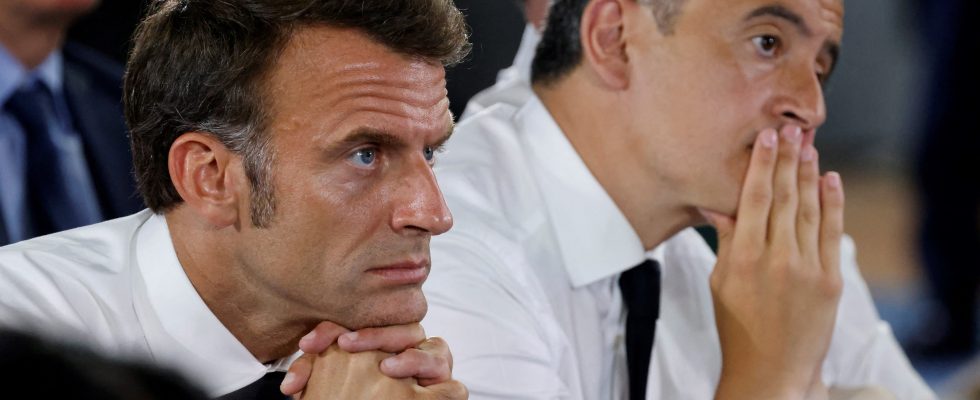The government’s immigration bill continues to get stuck on one point, the regularization of irregular workers in professions in shortage. Pandora’s box, box of fantasies; call for air, call for help: the subject, explosive, deserves a rational, dare we say scientific, approach, and it is quite the opposite that occurs. An almost theological debate is taking place, all the more fascinating since no one is capable of putting forward any precise numerical data.
There is a history of regularizations with three key dates which mark the spirits – and in particular maintain the legend of a generous or lax left, it depends. In 1981, if candidate Mitterrand was very cautious in his famous 110 proposals, President Mitterrand was quickly caught up in the question. In the first two years of his mandate, some 131,000 regularizations took place, or almost 90% of requests.
In 1997, after the surprise victory of the left in the legislative elections following the dissolution of the National Assembly, Lionel Jospin entered Matignon, Jean-Pierre Chevènement arrived at Place Beauvau. The circular from the Minister of the Interior gives rise to the submission of 143,000 files and leads to around 100,000 regularizations.
In 2012, it was the famous Valls circular, which continues to be in force today. According to government sources, in ten years it allows around 72,000 “exceptional admissions to stay” (new titles) for economic reasons – 2,259 in 2012, 10,774 according to the first estimates for 2022. If we take into account the regularizations made possible by the Valls circular in all categories (students, parents of school children, etc.), we end up with a total of 335,000 regularizations in ten years.
The “wet finger” of Dussopt and Darmanin
In 2023, it is as if all the actors, in government, on the right, on the left, had given each other the word: above all, no figures! Obviously, when we talk about illegal immigrants, we enter by definition into a zone of great vagueness. In his book Immigration – These realities that are hidden from us (Robert Laffont, 2020), Patrick Stéfanini estimated the number of illegal immigrants between 600,000 and 900,000. Today, senator LR François-Noël Buffet, president of the Law Commission and specialist on the issue, estimates around 800,000 the number of people in an irregular situation.
The government wants at all costs to give the impression of controlling the consequences of its bill. Elisabeth Borne, like Gérald Darmanin and Olivier Dussopt, speaks of “a few thousand” regularizations. In January, the Minister of Labor mentioned “a few thousand, even tens of thousands, of people” but he has since dropped the second part of the sentence.
The chairman of the Assembly’s Law Committee, Sacha Houlié, asked ministers for “consolidated figures” on several occasions, always in vain. In the Senate, it’s the same thing. “When we heard Olivier Dussopt and Gérald Darmanin on the first text in the Law Committee, they refused to give a figure. They simply said that we could give a quota of regularizations per year and stick to this number “, says François-Noël Buffet, who concludes: “We’re on a wet finger.”
On the left, it’s more like a wet hand, or even an arm. In the transpartisan forum signed by around thirty parliamentarians from Modem to EELV and published by Release and France Info, no estimate is put forward, there is “nothing very precise”, recognizes the former boss of Ofpra (French Office for the Protection of Refugees and Stateless Persons), Pascal Brice who is nevertheless at the origin of the text. But MP Julien Bayou details to L’Express: “We are out of tens of thousands, at least. In the forum, we deliberately do not mention ‘job in tension’, which doesn’t mean much. Job in tension , construction is it and catering demands it. We can substitute it by profession which relies essentially on immigrant labor. If we take into account self-employed people, Uber Eats delivery men in particular, this concerns dozens and tens of thousands of people.” The ecologist puts forward a more political motivation: “We are not counting on Eric Ciotti’s vote and since the right and the extreme right will not even vote for a small regularization, let’s not procrastinate: propose regularization through the work of the most massive.”
On the right, the line is intended to be clear: from a regularization, it is too much. But is it even realistic? Macronists readily talk about the requests they receive from LR elected officials seeking to obtain regularizations for issues they personally follow. On a case by case basis, of course.
